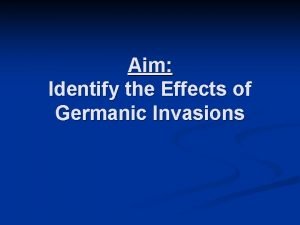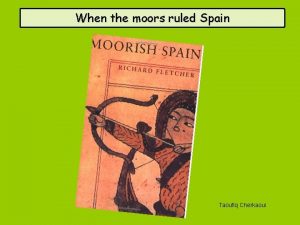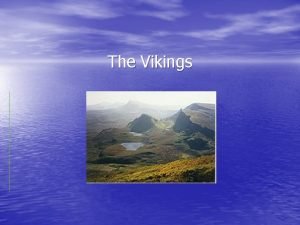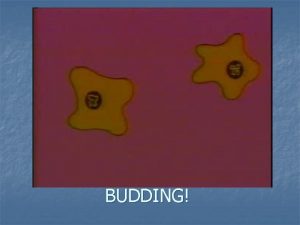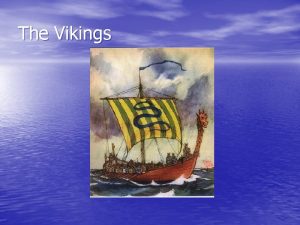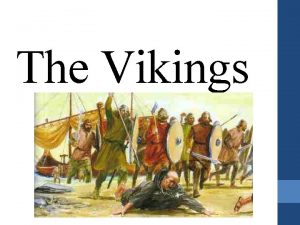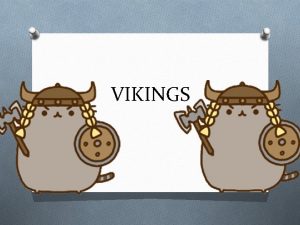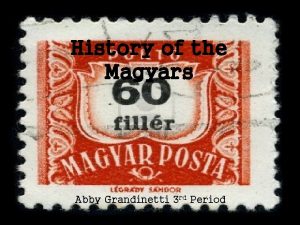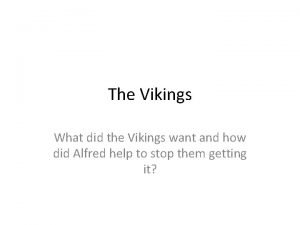Vikings Moors and Magyars Invasions Vikings To go















- Slides: 15

Vikings, Moors and Magyars

Invasions!

Vikings • To go “a Viking” was to raid in the summer • Not clear why the Vikings (Danes, Swedes, Norwegians, Finns and Saami) started raiding outside of homelands • Earliest recorded foreign raid was Lindisfarne in 793 AD

Viking Ships • Vikings invented the keel in the 7 th c. allowing ocean going vessels • Planks overlapped in clinker fashion for sea-worthiness

Viking Women • Could inherit property • Chose where and how to live if unmarried • Represented themselves in legal cases • owned their own businesses (such as breweries, taverns, shops, and farms)

Vikings Farming? Trading? • Vast majority farmers—settled new lands • Traders as evidenced by numerous blacksmiths, brewers, weavers, luthiers, jewelers, craftsmen

Magyars • Magyars came from area around Ural Mountains in 9 th c. to Carpathian Basin (Hungarian Plain) • Debate of origin but believed related to Finno-Turkic peoples • Excellent horsemen and bowmen

Great Magyar Migration • Over 200, 000 men, women and children came with their herds of horses, cows, camels, sheep and goats • Also traders with blacksmiths, tanners, jewelers, potters, bowyers, beekeepers • Allied with both Byzantine and Holy Roman Empire

Berbers or Moors or Saracens • North African Berbers and Arabs crossed Straits of Gibraltar in 711 AD conquering most of the Iberian Peninsula • Called Moors initially because known as Mauri to the Romans (from Mauretania in NW Africa) • Arab Muslims were known my Middle Age writers as Saracens, sometimes a term used to refer to all

Tariq and The Hammer • In 732 AD, Charles “The Hammer” Martel stops Tariq ibn Ziyad at Tours • A primarily Berber caliphate called Al-Andalus, rules most of Iberia until 1492 • Western Europe never really threatened again by Muslim armies

Islamic World in 1000 AD • Islam not a unified empire fighting Christendom • Constant raiding and invasions, lays groundwork for Crusades

Feudalism • As defined by Merriam Webster: the system of political organization prevailing in Europe from the 9 th to 15 th c. having as its basis the relation of lord to vassal with all land held in homage, for the service of tenants under arms

Feudalism • Socio-political system where land was bartered for service • Service of nobles was to provide soldiers (knights) • Service of peasants was to work land in exchange for protection

Feudalism • In reality a feudal life varied greatly by region – power could shift between King-Nobles-Knights • Key aspects: • land as wealth given for loyalty (to nobles/knights) • nobility expected to provide security for land/peasants

Feudalism Ends • Works as a system, especially in the turbulent Middle Ages – why does it eventually fail in 15 th Century? • Crusades draining the wealth and knights of Europe • Urbanization • Large scale population decrease • Peasants (and nobility) revolt against church and state • Ideas exchanged in Crusades and after, take root
 Wiley windy moors
Wiley windy moors Which landforms protected the cities from invasions?
Which landforms protected the cities from invasions? Effects of germanic invasions
Effects of germanic invasions Effects of germanic invasions
Effects of germanic invasions Type of muscle
Type of muscle Types of aggression in psychology
Types of aggression in psychology Who are the moors in othello
Who are the moors in othello Othello's enemy
Othello's enemy When the moors ruled spain
When the moors ruled spain West moors middle school
West moors middle school What vikings drank
What vikings drank Vikings and mongols
Vikings and mongols Vikings: merchants and explorers
Vikings: merchants and explorers Budding nn
Budding nn Scandinavia vikings
Scandinavia vikings The vikings were sailors came
The vikings were sailors came



